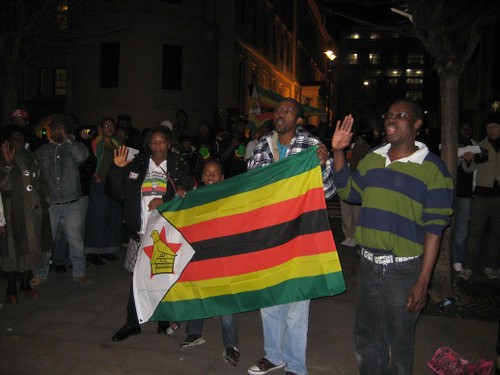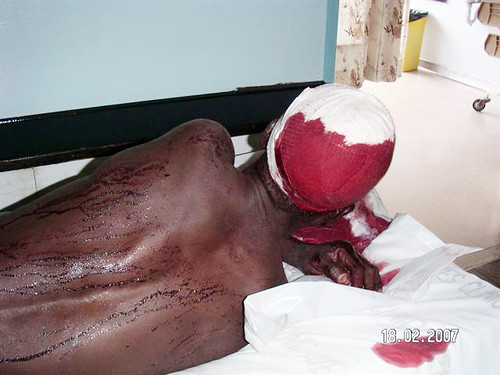
Last Letter in the Alphabet – Zimbabwe
Can we fault Sarah Palin for knowing little about Africa? (alright – it turns out she actually does know it’s a continent) But if she’s fuzzy on its whereabouts (after all, it’s not visible from her front porch), or if she can’t name an actual country inside the continent, she could always blame her favorite whipping boy – the media. We know she has an affinity for clichés (spouting or embodying them) – and the one that says Africa gets short shrift in the American news media is well worn. But we can still bemoan this fact just the same.
Case in point: A recent Google search shows the top five stories about Zimbabwe – a country near implosion – are provided courtesy of the Voice of America, an outlet which is forbidden to broadcast directly to the American public.
One could also be forgiven for missing the ongoing coverage of the country’s collapse by Pulitzer-prize-winning reporter Barry Bearak of the New York Times. A recent story about the cholera epidemic and demonstrating doctors who were on the receiving end of security-service truncheons was buried on page A-18 of the Times (thus its merit for this blog).
This is the same Barry Bearak who was imprisoned in Zimbabwe because of his coverage of dictator Robert Mugabe’s attempt to steal the presidential election last spring. Bearak’s folly was to report from Harare, and actually use his name in the byline (learning from its mistake, and fearing future reprisals against its reporters, the Times now cites those writing from Zimbabwe thusly: additional reporting provided by someone in Harare). To call this a sad state of affairs would be a tremendous understating of the obvious. An added twist to the story is that Bearak’s wife, Celia Dugger, also a Times correspondent had the task of covering his imprisonment – not knowing when or if he’d be released and in what condition.
Bearak, who was later released and now writes from the safety of Johannesburg (as far as this writer knows), is better known for his magazine writing, with its vivid prose and flawless ledes – like this one from when he was covering South Asia for the Times, and wrote about vigilante justice in Bangladesh:
“”Handcuff” Babul got his bloody comeuppance a few weeks back, a rare occasion for common joy in the  teeming and miserable Dhaka slum known as the B.N.P. Bustee. Usually, when a man gets a good part of his arms chopped off with a machete, there is a wince in the telling of it and a proper show of pity. But for such a young man, barely 25, Handcuff Babul had acquired a contemptibility far beyond his years.” (pdf)
teeming and miserable Dhaka slum known as the B.N.P. Bustee. Usually, when a man gets a good part of his arms chopped off with a machete, there is a wince in the telling of it and a proper show of pity. But for such a young man, barely 25, Handcuff Babul had acquired a contemptibility far beyond his years.” (pdf)
His writing is not to be missed – even if it’s just beat reporting about a small and insignificant state in a country – er, continent that holds relatively little interest in the eyes of average Americans. Combined, his articles of Zimbabwe will inevitably paint the picture of a once prosperous country failing before our eyes, and the failure of an international community to do anything to stop one of the most incompetent and misguided despots of our day.



